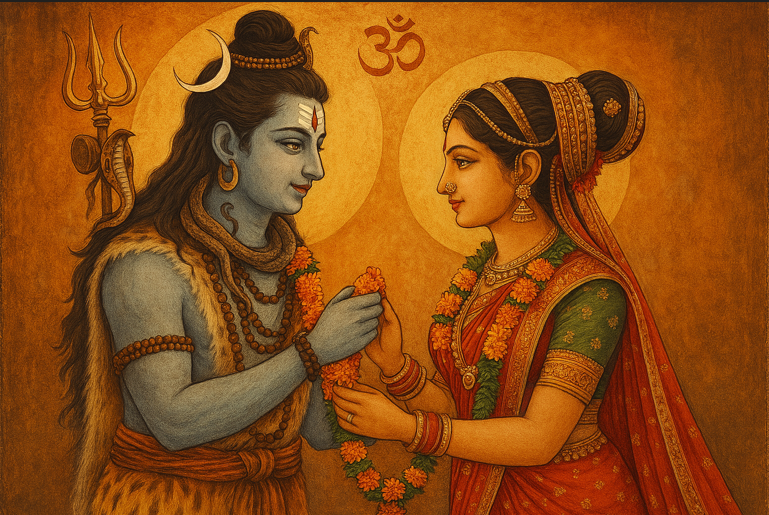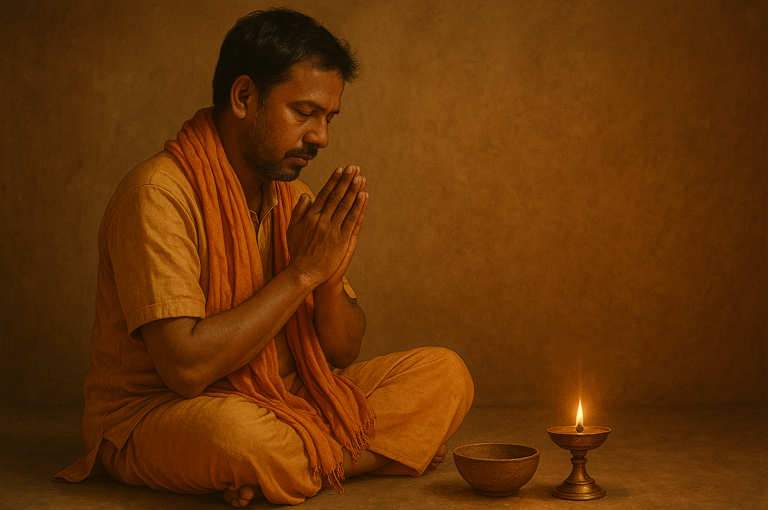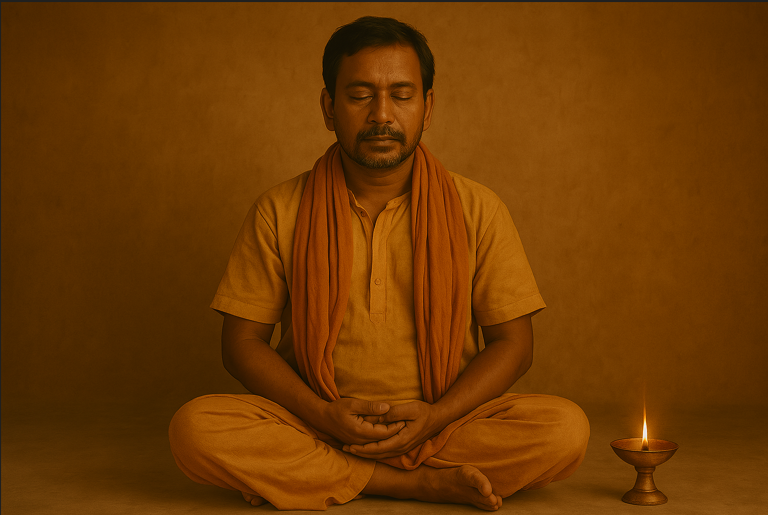Maha Shivratri, also known as Shivratri, is one of the most holy nights in Sanatan Dharma, where millions of people celebrate by worshipping Lord Shiva through rituals, prayers, and offerings. Temples are packed with hymn singing or incense burning, but the most popular practice is fasting. And why is refraining from food so much of the day? Well, it is common, but what is the real deal with fasting being of such high importance here?
Here we go to see what this ancient tradition means as we celebrate the sacred night at the Chaar Dham Temple in Vrindavan. It is the place where devotion and pure energy meet, under the blessing of Mahadev.

A Night of Cosmic Union
Shivratri is a festival of the union of Shiva and Shakti – the divine male and female deities. According to the legends, it is the wedding night between Shiva and Parvati. But it is not only a story; it is the story of a search for that equilibrium of opposites within us and without.
The tradition entails fasting a lot. They say that it is easy to access that spiritual energy when one does not eat, as this lightens the body and makes the mind sharp. It refreshes your concentration, right? That allows humans to become more in touch with the universal tones of the day.
It goes down to appreciating the aspect of duality, how pairs of opposites, such as light and dark, masculine and feminine, cannot exist freely without the other to maintain balance between them.

Fasting as a Path to Inner Purification
The relationship to food causes our connection with the physical world. By fasting, you are not only stepping back from what the body desires but also from the rat race. That is the pause in which you can clean your system: your body, mind, and emotions. Some practitioners observe the Shivratri fast and recount how they emerge as better persons, calm, alert, and touched by their spirituality. This is not about starving but about control, concentration in prayer, and accepting to be directed towards the holy.

Awakening the Inner Shiva
Shiva isn’t just a God—he represents a state of being: calmness, fearlessness, and the ability to embrace everything. On Shivratri, tradition says the stars align perfectly, creating a supernatural energy that’s felt everywhere. To tap into that, people fast, meditate, and keep vigil all night. The idea? These rituals help stir up the "inner Shiva"—that part of us that’s wise and in touch with the big picture. So, by staying up and stilling the mind, folks aim to connect with that higher version of themselves. Makes sense, right? It’s like the universe’s energy syncs up that night to make it easier.
At the Chaar Dham Temple in Vrindavan, the spiritual buzz hits you the minute you walk in. Folks are chanting Om Namah Shivaya, laying Bel Patra leaves and milk at the Shivling, and blasting out kirtans so loud the walls shake. It’s wild—this whole energy shifts everything. Fasting? Yeah, instead of feeling like a pain, it’s this inner cheer. The space is just… alive. You kind of forget you’re holding back food because your spirit’s caught up in the joy of it all. It’s like the rituals and the singing just light you up instead of weighing you down.
If you want to know the importance of offering Belpatra during Shivratri fast, then this video has all your answers.
Types of Shivratri Fasts
How people keep Shivratri fasts depends on what they’re comfortable with and their reasons. Here’s how a few traditions break down:
- Nirjala Vrat: The toughest call—no food or sips of water all day. Just pure endurance mode.
- Phalahar Vrat: Opt for softer rules instead. Some stick to fruits, milk, and water, trading heavy meals for lighter bites.
- Satvik Diet Fast: Another take—eating once, but say no to grains, onions, garlic, and processed stuff. Focus on clean, simple foods.
In the end, it’s all about the mindset, not the menu. Whether someone’s starving or just trimming their diet, the main thing is the dedication and self-control offered to Shiva. Different paths, same goal.
A Sacred Invitation from Chaar Dham Temple
At Chaar Dham Temple in Vrindavan, we’re saying come one, come all for a Shivratri that’s pure and soul-deep. Whether you fast, lose your voice at the all-night devotional singing, or just sit with Mahadev in meditation, it’s all about reconnecting. Don’t just go through the motions: let this year’s celebration become the kind of moment that shifts the energy inside you, stills your mind, and fills you with grace.
Har Har Mahadev!

